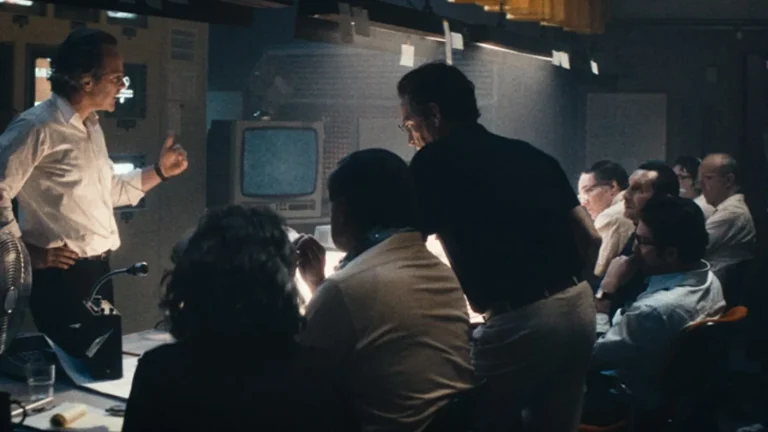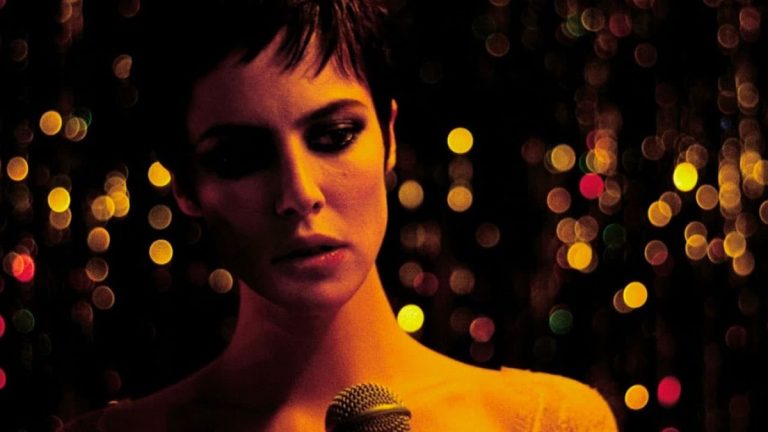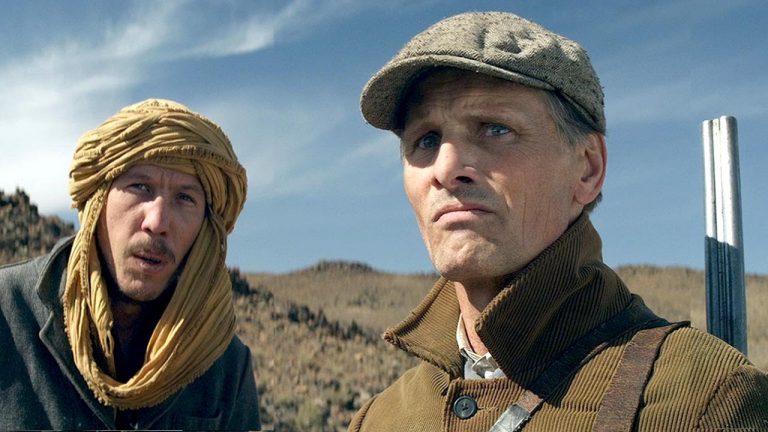“Loneliness has followed me my whole life, everywhere. In bars, in cars, on sidewalks, in stores—everywhere. There’s no escape. I’m God’s lonely man.” These are the words of Travis Bickle from Scorsese’s “Taxi Driver.” They also resonate deeply with the two central characters in Nuri Bilge Ceylan’s “Uzak” (“Distant,” 2002). While Travis, an insomniac loner who struggles with relationships and human interactions, turns to violence as a last resort to assert his existence, the characters in “Uzak” are so consumed by their loneliness that they refuse even to acknowledge it. As a result, they become apathetic, resentful, and even nihilistic, placing disproportionate value on fleeting pleasures like smoking, watching pornography, or aimlessly wandering, rather than attempting to form meaningful human connections.
“Uzak” tells the story of two pivotal characters: Yusuf, an illiterate and shy villager who moves to Istanbul to find work in a dockyard, and Mahmut, a wealthy, intellectual photographer who is also Yusuf’s distant cousin. Yusuf comes to stay at Mahmut’s flat during his job search. Both the characters have their own struggles in life. While Yusuf has no ambition and drifts away indulging in the pleasures of city life and daydreaming about a beautiful girl who lives in the neighborhood, Mahmut is also lost despite his material success.
He isolates himself from everything outside his cocoon, including his own family, and his only human relationship—with a married woman—is purely sexual. While Yusuf’s visit brings him companionship, Mahmut is also resentful and annoyed by his childish, unruly, and careless behavior. For Mahmut, Yusuf is an unwelcome disruption to his meticulously cocooned life of apathy and detachment.
Mahmut tries to restrict Yusuf’s stay in every way possible. He dictates where Yusuf can smoke, where to take off his shoes when to turn off the lights, and even orders him to leave the house occasionally so that he can have his passionless sexual activities. He pretends to empathize with Yusuf by taking him on a photography trip to Anatolia and inviting him to a gathering with his friends. Oftentimes, Ceylan brings out crude humor through these awkward interactions between them. This further intensifies the theme of social alienation and lack of empathy in modern society. For instance, in one scene, Mahmut plays Tarkovsky’s “Stalker” on television, pretending to enjoy it in Yusuf’s presence. When Yusuf leaves, bored, Mahmut immediately switches to a VHS of pornography. This stark contrast reveals Mahmut’s nihilistic worldview and his deep-seated emotional detachment from any human connection.
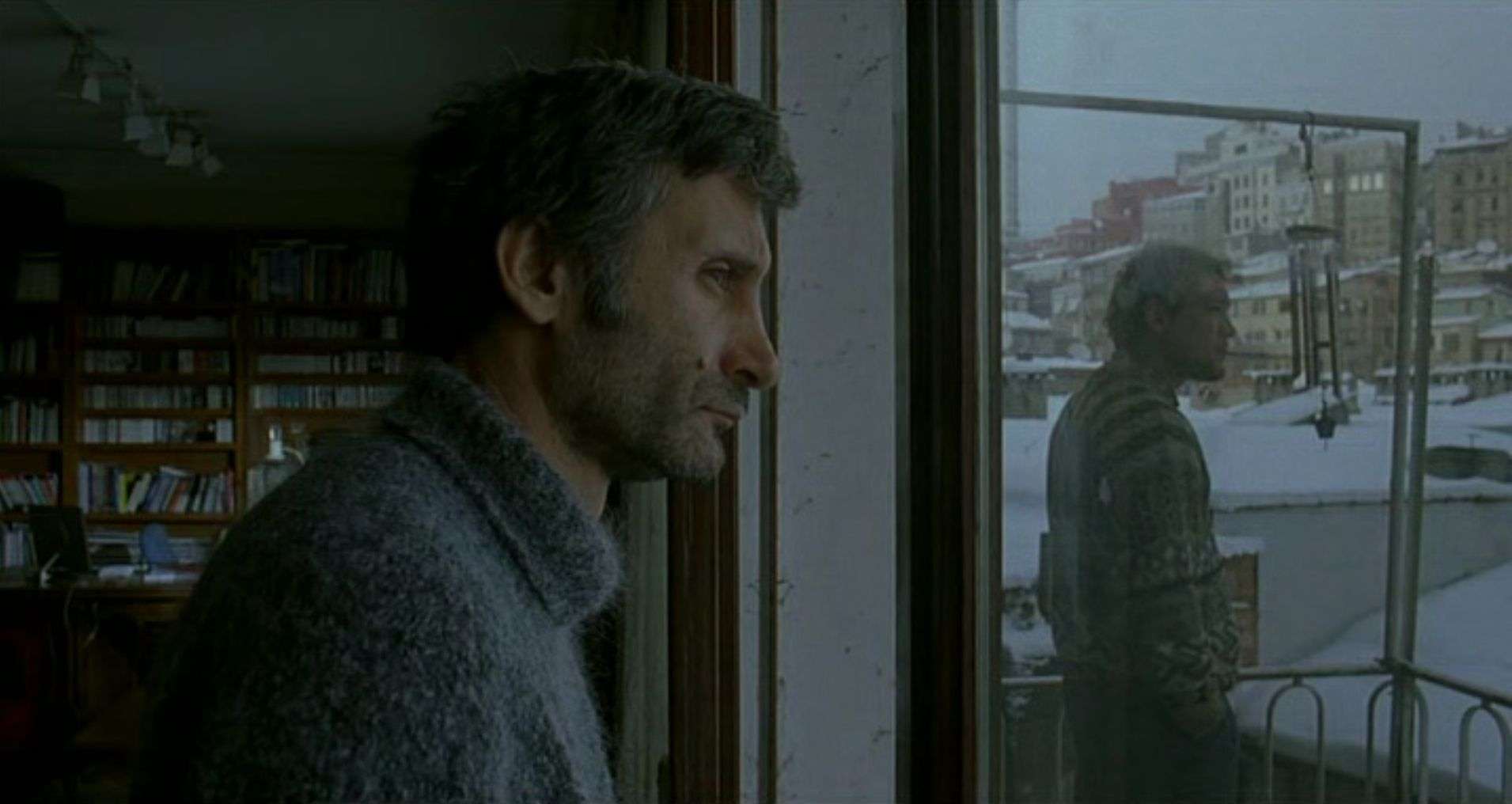
Mahmut is driven solely by his desires. Conversations reveal that he was once a talented artistic photographer, but he abandoned his passion to become a commercial photographer, capturing images of tiles for advertisements. Although his past artistic sensibilities linger – as evidenced by the impromptu photography trip to Anatolia or the Tarkovsky films (“Mirror” and “Stalker”) he watches – they are now mere remnants of a bygone era.
His study, filled with books, classical music cassettes, and his earlier photographs hanging in the living room, reflects a life he no longer engages with meaningfully. Mahmut’s disconnection stems from his struggle to adapt to the modern world, a challenge he shares with Yusuf. Like Yusuf, Mahmut migrated to Istanbul from the countryside, but while Yusuf retains a naive optimism, Mahmut’s past idealism has given way to cynicism. He resents Yusuf for embodying a version of himself that once believed in possibilities. But now he fears that such idealism is a dangerous illusion in the harsh reality of modern city life.
On the other hand, Yusuf’s utopian dreams of city life begin to crumble when he fails to secure work at the dockyard. He roams the bustling streets of Istanbul, surrounded by people yet profoundly alone, unable to forge meaningful connections. Even those he could connect with, like Mahmut, are too self-absorbed and resentful to offer any real support. Desperate for companionship, Yusuf stalks beautiful girls, seemingly just to say hello, but even these attempts prove futile. Yusuf’s wandering and stalking symbolize the disintegration of his idealized vision of city life. Like many young people from rural areas, Yusuf likely imagined Istanbul as a land of opportunity and excitement.
However, the reality is far from his expectations. The cosmopolitan landscape is rife with apathy and self-centeredness. It is a city that dazzles from the outside but feels hollow within. The wintry snowfall, though picturesque, serves as a metaphor: beneath its beauty lies a cold, unyielding reality. This is epitomized by a scene where a cargo ship is seen stuck in the snow and sinking, a perfect metaphor for the city’s allure and its underlying desolation.
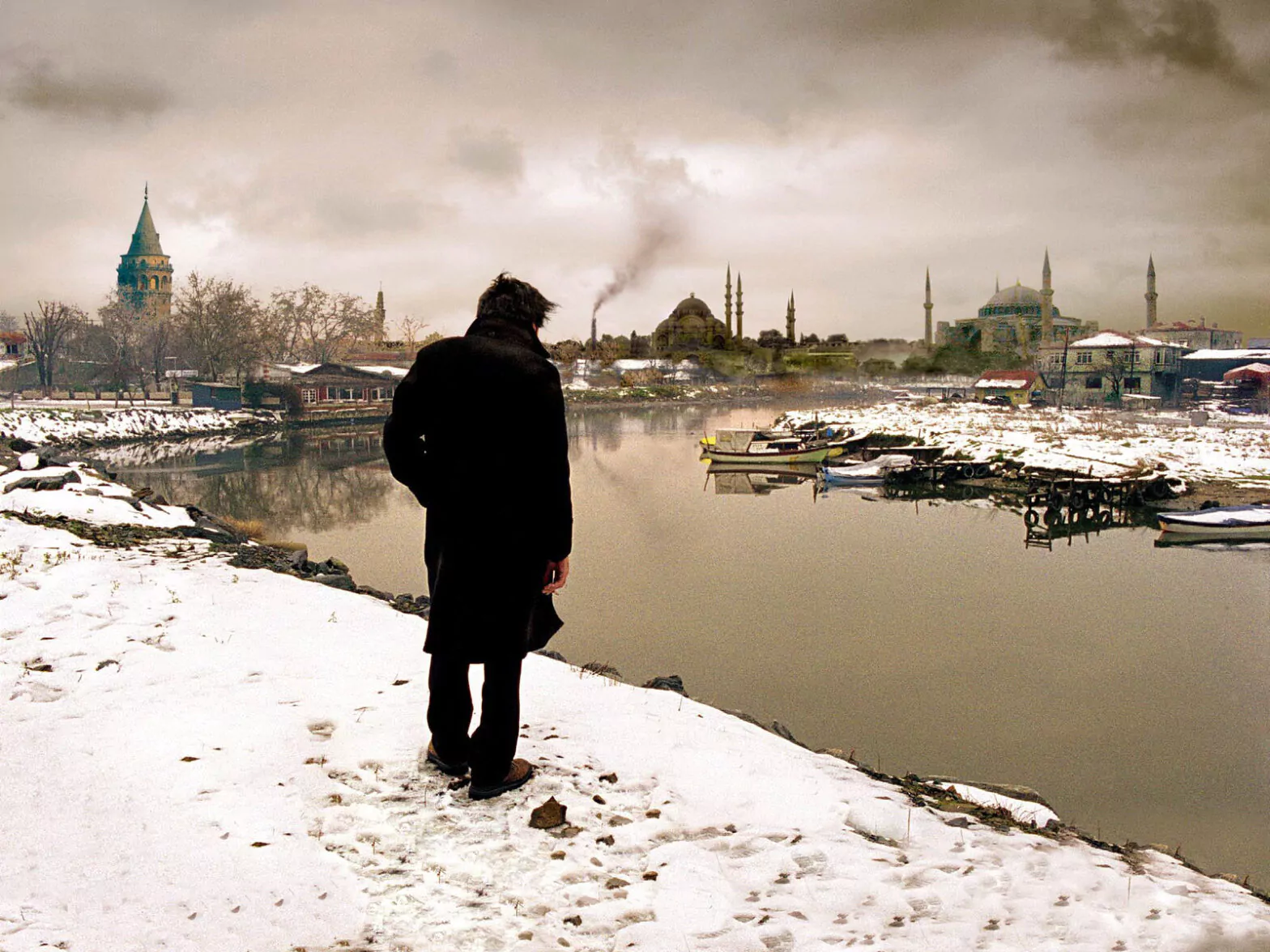
In every sense, “Uzak” is both a melancholic cinematic study of metropolitan isolation and a portrayal of masculinity as a state of empathetic absence and communicative failure. The urban environment—seductive yet cold—becomes an inhospitable landscape of loneliness. The wintry Istanbul cityscape, photographed by Ceylan himself, provides an ideal backdrop for this exploration. Often, the camera remains static with long takes, merely observing the characters, almost as if even the camera is disinterested in engaging with them. This detachment mirrors the characters’ own emotional distance and alienation.
The performances, delivered mostly by Ceylan’s friends and family, are subtle and nuanced. The film’s minimal dialogue forces the actors to communicate through body language and their eyes. One particularly memorable scene features Yusuf, played by Mehmet Emin Toprak, waiting for a parcel to be delivered while a girl, played by Ebru Ceylan, waits nearby for the concierge to help her with a vacuum cleaner. Yusuf is infatuated with the girl but lacks the courage to approach her. The scene is visually stunning, with chiaroscuro lighting enhancing its emotional depth. The actors convey a powerful range of emotions through their expressions, making the scene resonate far beyond what dialogue could achieve.
Similarly, Muzaffer Özdemir’s portrayal of Mahmut’s isolation and apathy is meticulous. His calm, brooding eyes reveal the depth of his inner turmoil. In the film’s final scene, Mahmut sits alone on a bench, gazing at the sea and smoking. The moment is both powerful and heartbreaking, encapsulating his perpetual loneliness and the inevitability of his continued descent into apathy and resentment.
“Uzak” is a masterfully crafted film with striking visuals, understated yet nuanced performances, and a sharp social critique. Ceylan’s ability to intertwine the personal and the universal makes “Uzak” a poignant and enduring work in his oeuvre. While it lacks the warmth of “Kasaba” (better known as “Small Town” for the English-speaking audience) or the psychological depth of “Climates,” it stands as an essential study of loneliness and nihilism in the modern cityscape.


